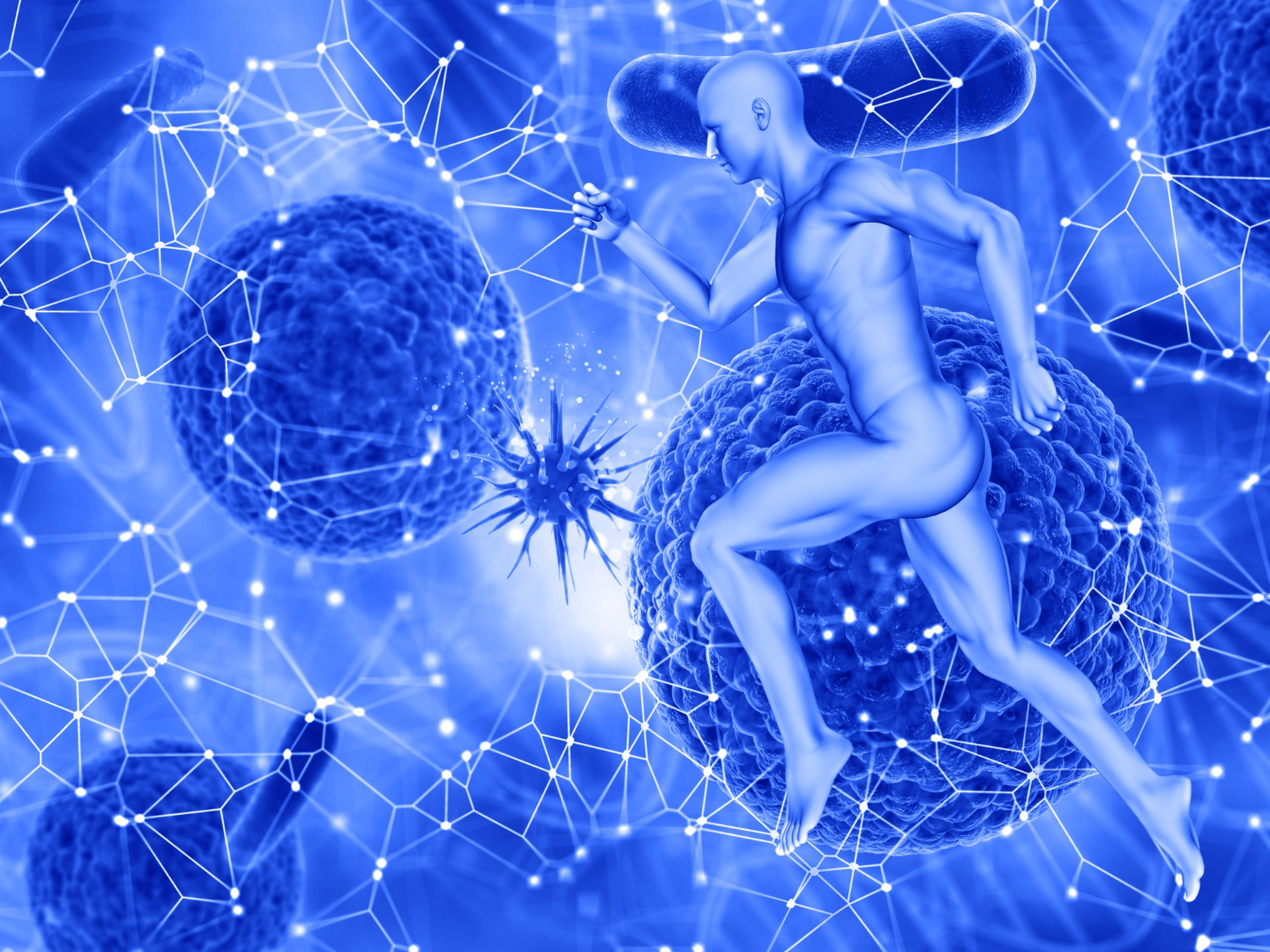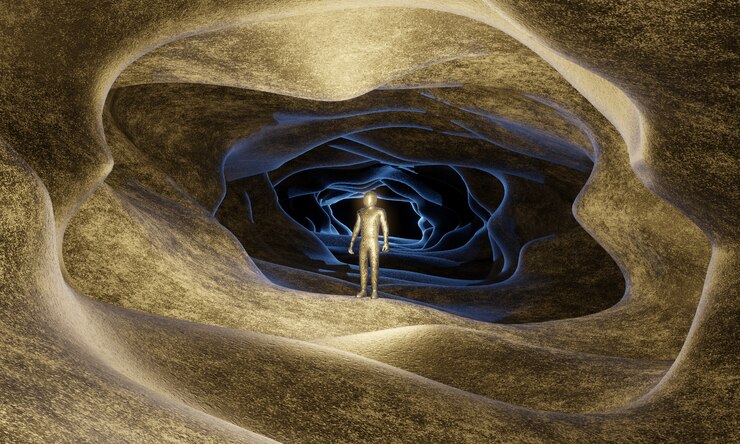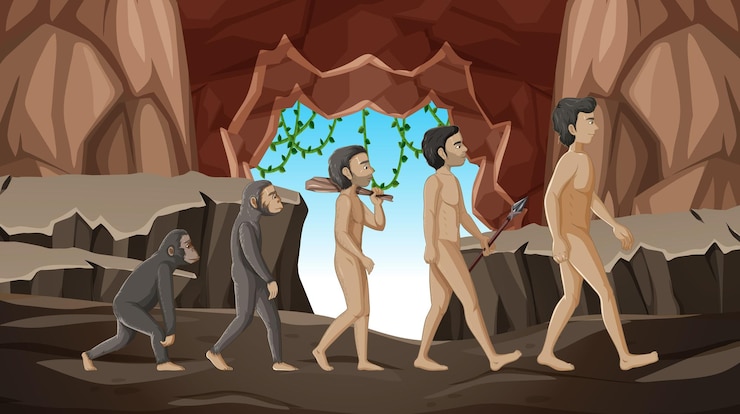Homo Sensorium – Is It New Human Species?
Homo sensoriums, also known as Sensates, are an advanced human species capable of telepathic communication. All sensate belong to a larger group or cluster, and its members can communicate with one another no matter where they are physically located.
Author:Suleman ShahReviewer:Han JuAug 04, 2024201.2K Shares2.6M Views

Homo sensoriums, also known as Sensates, are an advanced human species capable of telepathic communication. All sensate belong to a larger group or cluster, and its members can communicate with one another no matter where they are physically located.
Each cluster member is said to have taken their first breath at the same time on the same day. The parent visits all the sensates in the cluster during the start of the rebirth process, after which the sensates in the cluster suffer from severe headaches for a few days.
Psycellium, or the psychic nervous system, plays a role in the mechanics of the sensory link. Sensates might be able to temporarily disconnect from the psycellium and go back to being normal if they eat blockers.
It is not known whether any sensate is capable of giving birth to a cluster or if a sensate needs anything to give birth to a cluster. A sensate of any age or gender may give birth to a cluster, and numerous clusters can be born from the same sensate.
The sensates in the cluster get not just the genes from the parent but also their memories and experiences. So, a cluster keeps some of its parent's personality even after the parent has died.
What Is Homo Sensorium?
The name "Homo Sensorium" will seem familiar to anyone acquainted with "Sense8," one of Netflix's most popular shows. However, the word "homo-sensorium" only occurs in the novel.
Like the scientific genus for humans, Homo sapien, this species might be considered an evolved subset of the human species. To review, "sensates" are human, except for a few minor alterations that enable them to form social bonds with othersof their own kind. However, are there any such things as these made-up people in reality?
Some individuals have a stronger sensitivity than others, and this trait has a name. The target sensitivity requires more brain activity than the average person. They are also highly reactive to physical and emotional stimulation.
Then followed Elaine N. Aron's "The Highly Sensitive Person: How to Thrive When the World Overwhelms You," when the term highly sensitive person was first popularized.
Elaine is a psychologist by training and an extremely perceptive individual. She studied hundreds of people who reported being highly reactive to sensory input (including mental and emotional processing).
Her research found that some people are more sensitive than others, and the acronym highly sensitive person was made up to describe them.
Approximately 20% of the population, or 1.4 billion individuals, have a highly sensitive person. Some individuals are naturally more sensitive than others, while others are so overly reactive that they prefer to spend most of their time inside.
As a result, very sensitive people are sometimes misunderstood as being quiet or introverted, whereas these are three entirely separate personality traits.
How Is Homo Sensorium Different From Other People?
Eventually, modern humans will develop into a species known as Homo Sensorium, or Homo sensates. They can pick up on the emotions of those around them.
A violent vision brings together total strangers from all over the world who discover they can read and influence one other's minds and take swift, decisive action based on what they perceive. For them, curiosity isn't enough to drive their pursuit of knowledge.
Homo sensoriums, or telepathically linked people, are hypothetical human species. A cluster is a collection of sensates that may interact and share information regardless of physical location.
Before the sensates awaken, they are physically and anatomically similar to Homo sapiens. Although a fetus is fundamentally a person, not every baby has the genetic make-up to be born with sensorium abilities.
Once awakened, the sensory elements form a network in which they may communicate via visit, sharing, and connection, all of which are forms of telepathy.
What Is Sense8 Based On?
Eight individuals are telepathically connected in the Netflix series Sense8. Even though they will always be connected, it seems like each person in the group chooses how to show sympathy and care for the others.
An intriguing yet convoluted story is woven into Sense8. Eight total strangers make the startling discovery that they have a psychic connection.
When the show first aired in 2015, they were still trying to make sense of their newly discovered identities; when Season 2 premieres on Netflix this coming Friday, they will continue this process.
As fans settle down to watch the new batch of episodes, one, in particular, may baffle them out of the gate since it is unique to them.
The protagonists and their kind are referred to as "delegates," although this term lends an air of respectability. Valid, the word "sensate" means something like "pertaining to or apprehending or perceived by the senses."
Even though the term is used unusually in Sense8, it is correct because the sensates share sensory experiences.
However, the word "Homo sensorium" was created for the program. For those unfamiliar, "homo-sapien" refers to the scientific genus of humans, and this species might be thought of as an evolved version of that genus.
To review, sensates are precisely like the rest of us human beings except for one key difference: they have a genetic mutation that makes it easier for them to form close emotional and mental bonds with others of their species.
Homo-sensorium is synonymous with "sensate" throughout Season 2 of Sense8, despite the show never defining the word. In Episode 2, we learned that the founder of BPO, the group now on the trail of the Sensates, considered Homo sapiensand Homo sensoriumto be "obligate mutualisms," or mutually dependent societies.
After 9/11, the War on Terror started, and BPO shifted its focus from maintaining a natural and ethical equilibrium between the two species to eliminating substances as a direct danger to national security.
Abilities Of Homo Sensorium
Psychic Link
The sensates in a cluster have the same mental and emotional experiences. The link initially appears in the form of sensory input.
One sensate receives information via one or more of its senses about what another sensate within its cluster is experiencing simultaneously. Their bond becomes stronger with time, allowing them to share mental and emotional states.
Visiting
Mentally communicating indicates a visit. Sensates are mentally transferred to each other's places and feel what they do. Sensates interact telepathically, yet while visiting another, they speak out loud and seem to be chatting to no one.
Wolfgang's meeting with Lila Facchini shows that sensates may engage without speaking.
Instinctively, a cluster visits those in need. Sensates outside the cluster may also visit after eye-to-eye contact. Jonas could visit Nomi after establishing eye contact, but Whispers couldn't despite seeing her via Niles Bolger's eyes.
Bodhi may block visitors' senses from perceiving their surroundings. Eye contact seems to have no limit for sensate relationships.
Using visiting and a sensate's psychic bond, they may view the world through another sensate's eyes. This involves physical interaction. Visiting a sensate is impossible when they are heavily drugged or unconscious.
However, it seems possible to visit a sensate while sleeping, which means that sensates can share dreams. This was shown when Will Gorski and Nomi Marks both dreamed about Angelica Turing's mother simultaneously.
Sharing
When one sensate uses the resources of another sensate, we say that they are sharing. Only nodes inside the cluster itself may share data.
When Wolfgang lets Lito lie for him, and Will sees Kala give Riley an injection, sensates may exert physical influence over one another by sharing talents.
Sensates outside of the cluster may also participate in the sharing process by undergoing a lobotomy, a method that is currently unknown by BPO. As Angelica and Jonas proposed, sensates experience feelings, sensations, and emotions in their most unadulterated form.
People Also Ask
What Is The Story Of Sense8?
To escape arrest by a guy dubbed "Whispers," a lady named Angelica "births" the psychic link of eight strangers from diverse cultures and places around the globe and then takes her own life.
Is There Such A Thing As Homo Sensorium?
The name "Homo sensorium" should sound familiar to anyone acquainted with one of Netflix's most popular programs, "Sense8." However, the word "homo-sensorium" only occurs in the novel.
Like the scientific genus for humans, Homo sapien, this species might be considered an evolved subset of the human species.
What's The Difference Between Homo Sensorium And Sense8?
Despite its unconventional use in Sense8, the term is appropriate; the sensates do indeed share in each other's sensory experiences. The word "homo-sensorium," however, was created for the program.
Conclusion
Individual sensates seem normal at birth but have a latent link to their cluster that must be triggered by another sensate outside the cluster. This individual is called the cluster's father.
After the link is established, all of the cluster's nodes are "reborn" as sensate beings. Even though a person in the womb is a person at heart, not every person can come back as a sensate.

Suleman Shah
Author
Suleman Shah is a researcher and freelance writer. As a researcher, he has worked with MNS University of Agriculture, Multan (Pakistan) and Texas A & M University (USA). He regularly writes science articles and blogs for science news website immersse.com and open access publishers OA Publishing London and Scientific Times. He loves to keep himself updated on scientific developments and convert these developments into everyday language to update the readers about the developments in the scientific era. His primary research focus is Plant sciences, and he contributed to this field by publishing his research in scientific journals and presenting his work at many Conferences.
Shah graduated from the University of Agriculture Faisalabad (Pakistan) and started his professional carrier with Jaffer Agro Services and later with the Agriculture Department of the Government of Pakistan. His research interest compelled and attracted him to proceed with his carrier in Plant sciences research. So, he started his Ph.D. in Soil Science at MNS University of Agriculture Multan (Pakistan). Later, he started working as a visiting scholar with Texas A&M University (USA).
Shah’s experience with big Open Excess publishers like Springers, Frontiers, MDPI, etc., testified to his belief in Open Access as a barrier-removing mechanism between researchers and the readers of their research. Shah believes that Open Access is revolutionizing the publication process and benefitting research in all fields.

Han Ju
Reviewer
Hello! I'm Han Ju, the heart behind World Wide Journals. My life is a unique tapestry woven from the threads of news, spirituality, and science, enriched by melodies from my guitar. Raised amidst tales of the ancient and the arcane, I developed a keen eye for the stories that truly matter. Through my work, I seek to bridge the seen with the unseen, marrying the rigor of science with the depth of spirituality.
Each article at World Wide Journals is a piece of this ongoing quest, blending analysis with personal reflection. Whether exploring quantum frontiers or strumming chords under the stars, my aim is to inspire and provoke thought, inviting you into a world where every discovery is a note in the grand symphony of existence.
Welcome aboard this journey of insight and exploration, where curiosity leads and music guides.
Latest Articles
Popular Articles


